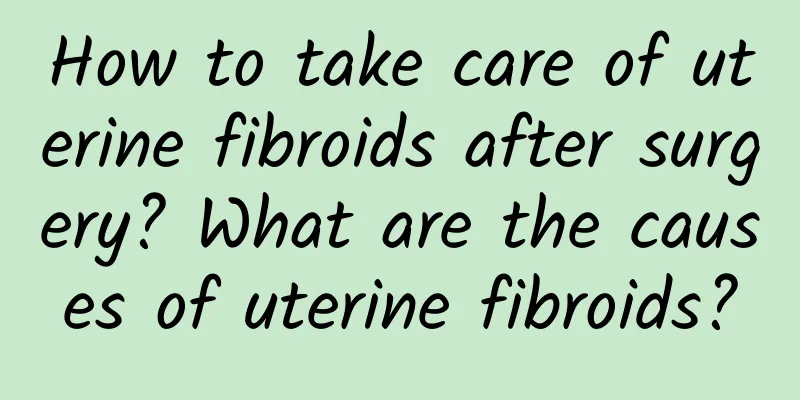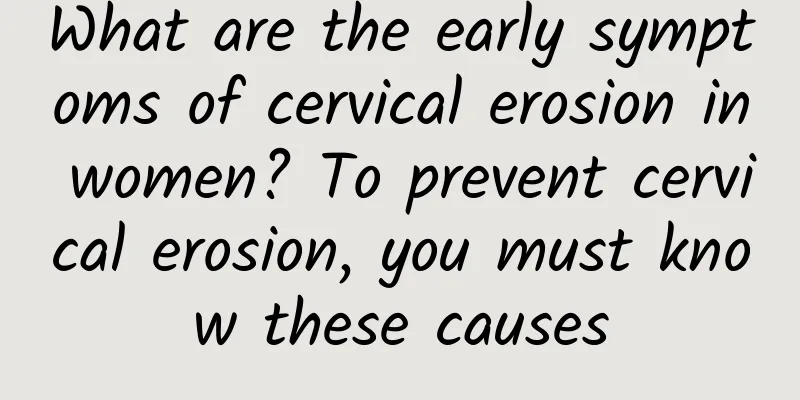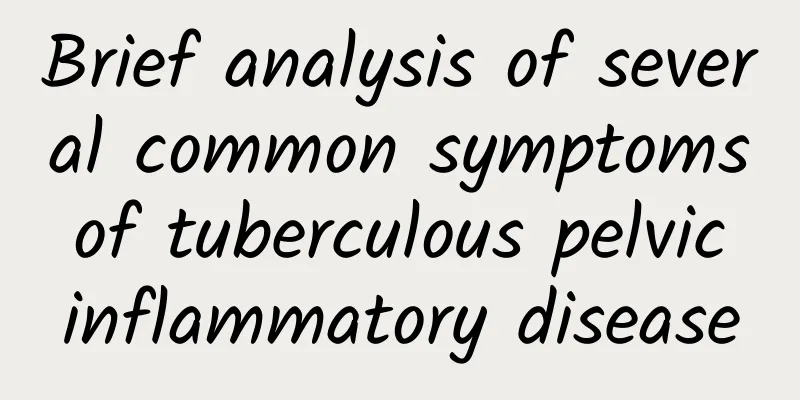How to take care of uterine fibroids after surgery? What are the causes of uterine fibroids?

|
Postoperative uterine fibroids require careful care and should be done thoroughly in one go. How much do you know about postoperative care for uterine fibroids? It doesn't matter if you don't know. I will give you a detailed introduction and hope it will be helpful to patients in need. Any disease cannot be separated from post-care, and of course, the same is true for uterine fibroids. Tips for post-operative care for uterine fibroids: 1. After the infusion on the same day, the urinary catheter can be removed and the patient can be encouraged to get out of bed; 2. The incision for laparoscopic surgery is only 1 cm. You can remove the abdominal dressing after one week, take a shower, and then gradually resume normal activities. Pay attention to appropriate and relaxing activities a week before to allow the body to recover as soon as possible; 3. Since most patients do not feel pain after uterine fibroid surgery, do not neglect massaging the patient's waist and legs, turning over every half an hour to promote blood circulation and prevent bedsores; 4. Within 6 hours after uterine fibroid surgery, lie flat without a pillow and turn your head to the side to prevent vomit from being inhaled into the trachea. 5. Six hours after minimally invasive surgery for uterine fibroids, the patient can eat a small amount of liquid food, such as thin rice soup, noodle soup, etc. Similarly, female friends should also correctly understand the harm of uterine fibroids and prevent them. Correctly understand uterine fibroids. Uterine fibroids are common diseases and common diseases in women. The incidence rate of women of childbearing age is generally 20-40%, and even as high as 80% in developed countries in Europe and the United States. Uterine fibroids are benign. Uterine fibroids are a hormone-dependent disease, which is related to the small number of pregnancies, obesity, emotions, genetics, etc. The occurrence of uterine fibroids has nothing to do with sexual life. The symptoms of uterine fibroids are mainly heavy menstruation, prolonged menstruation, anemia, frequent urination, lower abdominal oppression, infertility, back pain, lower abdominal pain, etc. Tumor Channel Hot Articles Recommendation Are you more likely to get cancer if you always pick your ears? Be careful of these 3 little actions that can trigger cancer! 14 dietary rules to keep cancer away from you 6 factors lead to ovarian cancer and 4 types of food "brake" Cold hands and feet are prone to cancer. Key points for cancer prevention for people with yang deficiency Eat pears after meals to prevent cancer. 12 secret recipes for preventing cancer in autumn |
>>: How are uterine fibroids usually caused? How to prevent uterine fibroids
Recommend
What are the dietary health care methods for Bartholinitis
The reason for suffering from Bartholinitis is th...
Pyramid exercise method! Burn 100 calories in 10 minutes
Pyramid exercise means adding one exercise at a t...
What are the common clinical symptoms of cervicitis?
Cervical disease is the most unspeakable scar in ...
The main route of transmission of endometrial tuberculosis
What are the main transmission routes of endometr...
How much does bacterial vaginosis surgery cost?
When it comes to the treatment of bacterial vagin...
Walking is the best aerobic exercise! Learn to walk with your hip joints to double your fat burning
Want to lose weight and burn fat effectively, but...
What are the specific methods for preventing menopause?
What are the specific methods for preventing meno...
Is it more painful to have a medical abortion or a surgical abortion?
Medical abortion and painless artificial abortion...
My period just ended 4 days ago and came again this afternoon. What’s going on?
My period just ended 4 days ago and came again th...
Are the health foods that Mama Loves Group Buying really good? Is it suitable for children?
Although Donna is not a mother yet, a large group...
Why can't you have an abortion before you recover from candidal vaginitis? 3 hazards of having an abortion before you recover
If you have completely recovered from candidal va...
How to treat moderate cervicitis
How to treat moderate cervicitis? 1. Drug treatme...
Do I need surgery for uterine fibroids? Medication for uterine fibroids
With the popularization of women's disease ex...
What's wrong with abnormal vaginal discharge and redness?
What's wrong with abnormal vaginal discharge ...
Can eating more guava help diabetics stabilize blood sugar? Nutritionist teaches you how to eat...
Questions often seen on the Internet include: &qu...









